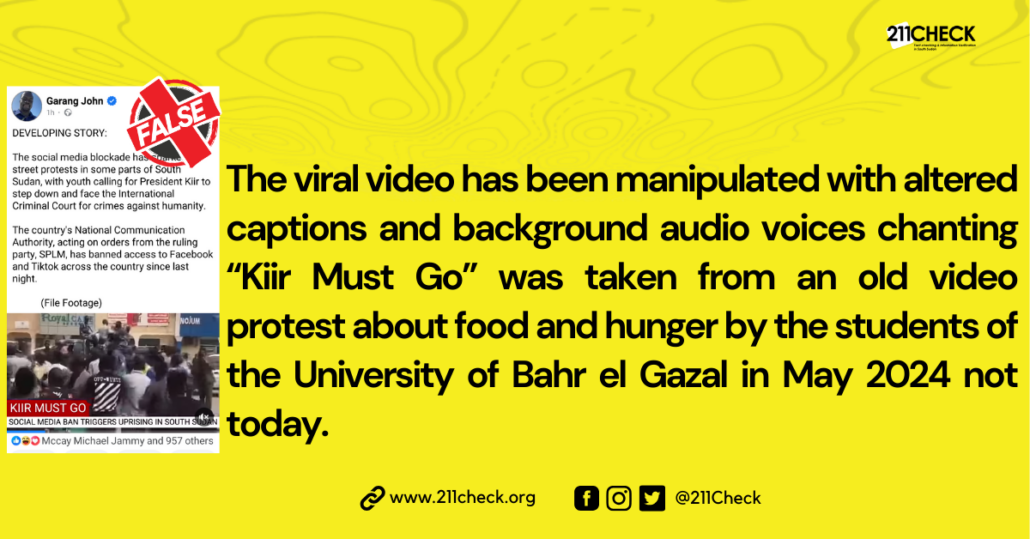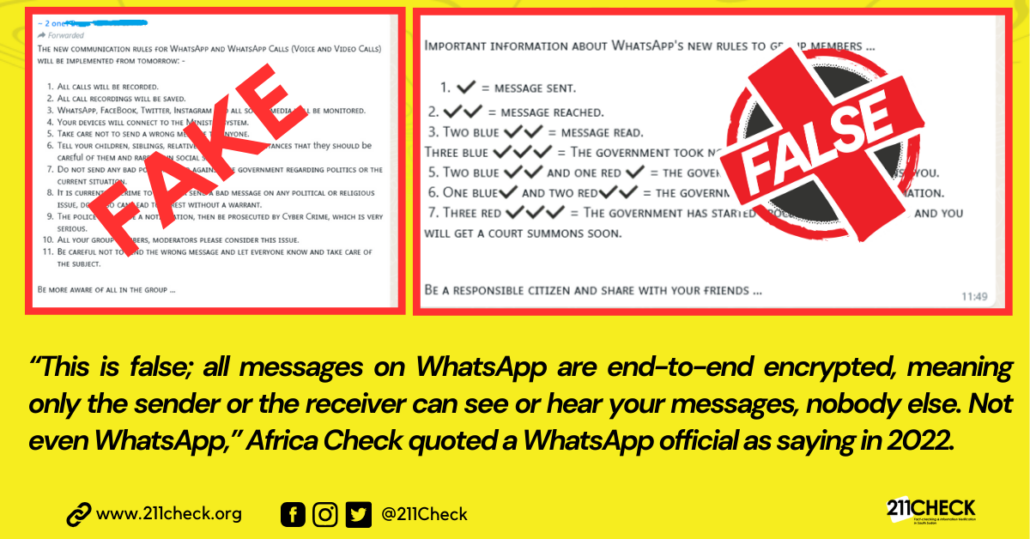Fact-check: A viral video of the protest with the caption President Kiir must go is old, not recent.
There was no protest today, and the video does not depict a protest against the social media ban but rather a 2021 demonstration for justice after musician Trisha Cee was knocked down in a water tanker accident.
Writer: Makur Majeng
A viral video making rounds on social media claims to show South Sudanese youths protesting in Juba against President Salva Kiir’s rule. The protesters are allegedly demanding that the president face prosecution by the International Criminal Court (ICC) for crimes against humanity. However, this claim is false, and the video has been altered to mislead viewers.
“The social media blockade has sparked street protests in some parts of South Sudan, with youth calling for President Kiir to step down and face the International Criminal Court for crimes against humanity. The country’s National Communication Authority, acting on orders from the ruling party, SPLM, has banned access to Facebook and TikTok across the country since last night. (File Footage)” reads Facebook Post.
The screenshot of Garang John’s post.
Claim Verification:
The video is not recent, and a Google reverse search reveals that the footage originally appeared on March 30th, 2021, during a protest unrelated to politics or the ICC.
The 2021 demonstration occurred after the tragic death of South Sudanese musician Trisha Cee, who was knocked off a boda-boda in a road accident involving a water tanker driven by an Eritrean. The protesters gathered at the Mobil Roundabout in Juba to demand improved healthcare services, stricter road safety regulations, and justice for Trisha Cee.
After a fatal road accident involving a water tanker, protesters called for better healthcare infrastructure and stricter licensing rules for foreign drivers, particularly Eritreans, as posted by Eye Radio.
Activists like Wani Michael, Manasseh Mathiang, and James Kolok were among those arrested during the protest. Demonstrators carried signs demanding justice for Trisha Cee, better road safety measures, and healthcare reforms.
Context:
The viral video has been manipulated with altered captions, and audio voices chanting “Kiir Must Go” in the background were taken from an old video protest about food and hunger by the students of the University of Bahr el Gazal in May 2024.
Social media users recirculated the video with misleading captions to stir political tension, but the fact remains clear the protests were about road safety and healthcare, not opposition to President Kiir.
Conclusion:
211 Check established that the viral video claiming that South Sudanese youth protested against President Kiir is false and misleading. The footage was extracted from a 2021 video that relates to demands for road safety and healthcare reforms following the death of musician Trisha Cee.
There was no protest today at the mobile roundabout regarding any issue against the president or the government.
To ensure accuracy and transparency, we at 211 Check welcome corrections from our readers. If you spot an error in this article, please request a correction using this form. Our team will review your request and make the necessary corrections immediately, if any.
It’s vital to fight misinformation and disinformation in the media by avoiding fake news. Don’t share content you’re uncertain about. False information can harm and mislead people, risking their lives—Fact-check before sharing. For more details, visit https://211check.org/, or message us on WhatsApp at +211 921 350 435. #FactsMatter.

 211 Check Website Graphics
211 Check Website Graphics 211 Check Website Graphics
211 Check Website Graphics